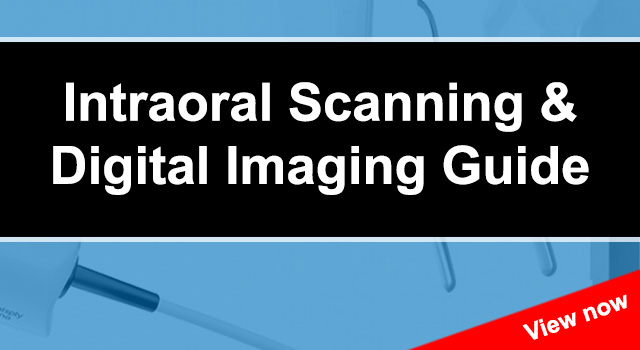Simplifying Cementation True simplification is often easier said than done, particularly for complex procedures such…

As the Fourth Industrial Revolution gathers pace the question for dentistry is how to respond…
The so-called ‘Fourth Industrial Revolution’ has arisen from new technologies which are merging the physical, digital and biological worlds and rapidly transforming all disciplines, economies and industries, including dentistry. Here some of the UK’s leading practitioners give their perspective.
The present ‘Industry 4.0’ builds on the digital revolution and is causing disruption in almost every area of business. The dental industry, especially, is seeing the effects and a number of practitioners are at the forefront of influencing how this revolution impacts the world. And their burning question is, how should we react? One of the key discussions taking place in practices across the country right now is all about the adoption of the new technology, why it is needed and how best to adopt it.
Digital dentistry is in the process of profoundly changing dentistry forever, according to oral surgery specialist Dr Colin Campbell, speaking at a panel session on the Fourth Industrial Revolution. “It’s a shift towards a new way of operating that perhaps other industries have moved towards earlier than dentistry. Using CAD/CAM is not new in engineering, but everyone sees it as new in dentistry.”
Dr Campbell explained that advances in digital dentistry allow practitioners to verify much of their procedure, carefully plan the surgical treatment in advance and get patients much more involved. This all provides more predictable outcomes for the patients and better treatments in the end.
Don’t be late to the revolution
Dr Campbell believes the best strategy with technology is not to wait too long to invest. Practitioners should look at ways of bringing it into their practice to the advantage of their team and their patients as soon as practically possible.
We know a certain percentage of the population will pick up things early and others will be later. But to wait until the technology is as good as it will ever be is a mistake, because it will always get better. It’s like buying a laptop; you would never wait until the next best laptop comes out – you would buy the best one available now.
One of the important potential obstacles for those thinking about getting involved in digital dentistry is the associated learning curve.
You can see this as a barrier or you can see it as a wonderful exciting challenge. For people who see it as a challenge it’s really rewarding; for people who see it as a barrier it’s going to be difficult. So just in the way that implant dentistry re-motivated a generation of clinicians in the 1980s and 90s, digital dentistry is really motivating clinicians now,” said Dr Campbell.
Making dentistry more human

One unforeseen benefit of the new technology is its remarkable ability to open the doors of communication between the technician and the dental practitioner.
Dr Sinead McEnhill, director of the Belmore Dental Clinic in Enniskillen, explained:
You used to sit for long hours every day just figuring solutions out yourself. Now the burden has been halved, maybe even less than that. By talking with the technician, with your patients, with your staff because everybody is involved in the communication process, and everybody is equally enthused.
And Dr Campbell agrees:
I think it’s bizarre that it’s taken this level of technological advance to almost make the industry more human. Because the interaction with people is much better in this area than it was previously.
The workforce of the future
The introduction and adoption of new technology has some in the industry concerned about its impact on the dental team, especially dental assistants, with the tasks that would usually be delegated out to the team being undertaken by the technology instead. However, this fear is unfounded according to some industry experts who believe that it should bring all members of the team closer together. They say one of the key benefits in dentistry of the Fourth Industrial Revolution is the empowerment of the whole team through technology.
Dr McEnhill said:
I often see our nurses going in opposite directions, one glazing the restoration and the other standing entering new data for the next new scan and it’s fantastic just to see how it has empowered them completely. It’s a win-win for the entire practice from the value that you feel at the end of your working day.
The best response to the revolution is to get everyone in your team inspired and get them trained to do as much of the procedures as possible. Dr Campbell said:
It makes you push tasks out to your team and to start to develop them and that creates a career pathway for them. It’s just an enormous turnaround. There’s definitely somebody in every practice that wants to do this, we just haven’t discovered them all yet.
The overwhelmingly positive reaction of these industry experts makes clear that the best way to adapt is to take positive action to get on board early, find out how your practice can embrace the changes and ensure the whole team is actively involved. The revolution sweeping across the industry should not be something to fear and is already providing huge advantages to both patients and the profession as a whole.
Henry Schein® ConnectDental®, Henry Schein’s platform for digital dentistry, combines a wide choice of digital technology solutions with all the knowledge, service and support needed to help practitioners navigate the rapidly changing world of digital dentistry. For more information, visit www.hsdconnectdental.co.uk.



